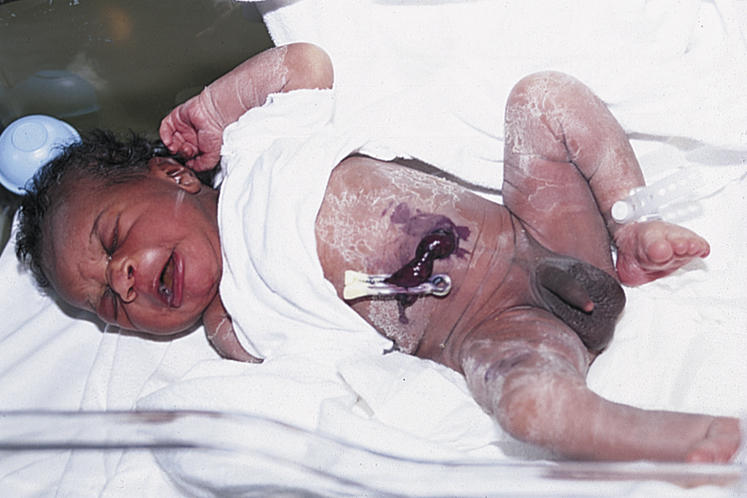postmature infant, an infant born after the end of the 42nd week (288 days) of gestation, bearing the physical signs of placental insufficiency. Characteristically the baby has dry, peeling skin; long fingernails and toenails; and folds of skin on the thighs and sometimes on the arms and buttocks. Hypoglycemia and hypokalemia are common. Postmature infants often look as if they have lost weight in utero. The newborn is fed early, and the calcium and potassium levels in the blood are monitored and corrected, if necessary, to prevent seizures and neurological damage. To prevent the syndrome, labor may be induced as gestation approaches 42 weeks. To anticipate the problems associated with the syndrome, the fetus and the mother may be electronically monitored through labor. Also called postmature newborn, postterm infant.

